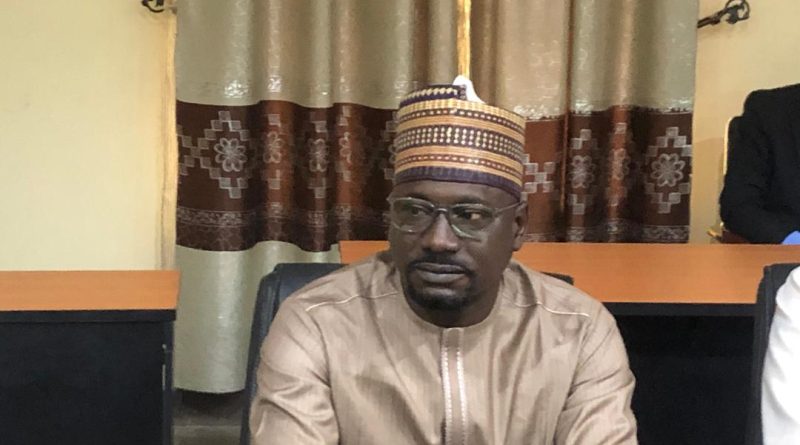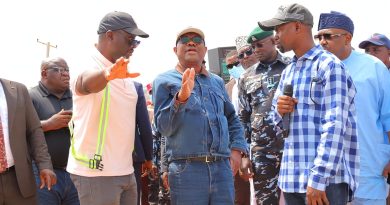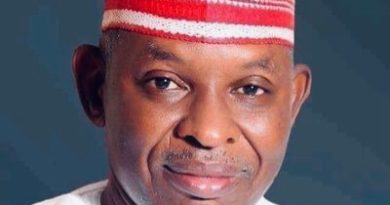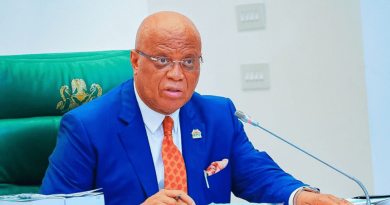Rural Electrification Agency/World Bank Solar Power Project Will Boost Education, Tackle Insecurity In Borno – Aliyu
By Gbenga Akingbule
The collaboration between the Federal Government of Nigeria through the Rural Electrification Agency (REA) and the World Bank by installing 12 Megawatts hybrid solar power plant at the University of Maiduguri ( (UNIMAID), will go a long way towards boosting the students education and address the issue insecurity.
The Managing Director and Chief Executive Officer of the Rural Electrification Agency Abba Abubakar Aliyu said this during an inspection tour of the project at the weekend.
The project which is funded by World Bank is expected to provide 7 Megawatts uninterrupted power supply to UNIMAID and 5 megawatts the sister institution – the University of Maiduguri Teaching Hospital ( (UNTH)The hybrid solay power plant which initial date of completion was moved from July to September due to logistical problems is the Energizing Education Programme (EEP), an initiative of the Federal Government of Nigeria (FGN) implemented by the REA to deliver dedicated captive solar hybrid power systems to 37 Federal Universities and 7 University Teaching Hospitals across the country.
According to MD/CEO of REA , 350,000 student form UNIMAID and expected to benefit and it will also impact over 50,000 staff, including non-academic staff.
He highlighted the near completion of the Phase II project, which includes seven universities and two teaching hospitals.
“This project is the biggest of all the projects we’re doing and just imagine protecting the students and having the students to stay within their campus to study and being provided with 24/7 electricity, just imagine that the UMTH will be provided power 24/7, the health Institution and students there also benefiting, this is just to show that this project will contribute immensely to addressing educational and insecurity issues in Borno State ” Aliyu said.
Aliyu revealed that the ” World Bank’s first visit, and their support has been crucial in making this project a reality. Due to their confidence in the REA’s project implementation, the World Bank is providing an additional $750 million for the second phase of the program called the Distributed Access through Renewable Energy Scale-up (DARES).”
The World Bank Practice Manager for West Africa, Mr. Ashish Khanna who led a team from the Bank stated that apart the installation of 12 megawatts hybrid solar project, there’s also a special program for ” 100 students which include 20 female students who are learning solar education as the job of tomorrow “.
Olufemi Akinyelure, Head of the Nigeria Electrification Project urged benefiting institutions to take ownership of the project and ensure adequate maintenance system.
” This renewable energy system , more importantly is the operation and maintenance. The benefitting institutions must take ownership and ensure their staffs are properly trained which the program has made provision for.
“Our mission is to create a sustainable future for Nigeria’s educational institutions. The EEP Phase II underscores our dedication to leveraging renewable energy solutions to drive academic excellence and gender inclusion in STEM fields.” Akinyelure said.
The lead Resident Engineer, Lincoln Uyigue who conducted dignitaries round the solar project revealed that the project is over 80 % completion and that over 25, 000 solar panels , a total of 7MWh batteries and 10MW diesel generator provided to black start and charge the battery bank should there be short fall from the solar panels.
” The project also involve the installing 288 streetlight units on the university campus, establishing a world-class workshop and training center (WTC Building), upgrading the university network, ” Base on our survey , UMAID and UMTH power load is not up to 7 megawatt, so the school has enough power to sell to any potential buyer . But we have the critical and none critical load – the critical load is for UNIMAID academic area and UMTH while the none critical load is the residential areas . ” Uygue said.
The team of the REA and the World Bank had visited the Borno State Ag. Governor, Hon. Umar Usman Kadafur and the Ag. Vice Chancellor of UNIMAID Prof Aliyu Yahaya where they stressed significance of the project to benefiting institutions.




